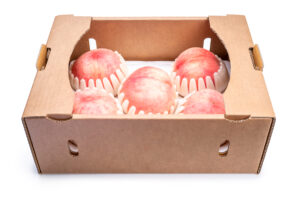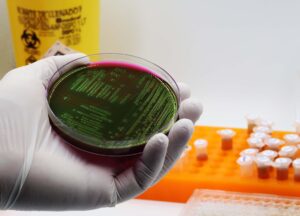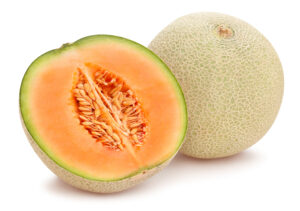Whole peaches, plums, and nectarines (i.e. stone fruit) have been implicated in a multistate outbreak of Listeria monocytogenes infections. Initially, an epidemiological investigation indicated
people in this outbreak were 18 times more likely to eat peaches, plums, or nectarines. Subsequent sampling and testing of 2lb bagged peaches from the supplier were found positive by FDA and linked with whole genome sequencing to the outbreak strain. Further analysis indicates that this outbreak has led to one death and eleven illnesses occurring as far back as August 2018.
This is not the first outbreak associated with stone fruit. An outbreak involving Salmonella Enteritidis contaminated peaches occurred in 2020 causing 101 reports of illness. In a 2014 outbreak, the first cases of listeriosis involving contaminated stone fruit (i.e. whole peaches, nectarines, plums, and pluots) were reported. Pathogens generally persist on the contaminated fruit surface (i.e. skin) and can cause illness if not properly sanitized before consumption.
An investigation report for the 2020 outbreak published by FDA examined the potential sources and routes of Salmonella product contamination from associated peach orchards and packing lines. Environmental samples were collected from the packing houses, product samples (peaches) from the packing houses and orchards, and peach tree leaves from the orchards during the investigations. All tested negative for presence of the outbreak strain. This may have been due to subsequent cleaning/sanitization and review/update of food safety programs that occurred during the product recall. However, multiple Salmonella isolates from product and leaf sampling genetically resembled previous chicken and cattle isolates, not associated with any known foodborne illnesses. FDA hypothesized that the adjacent animal operations (both poultry and cattle) were a likely contributing factor to the Salmonella Enteritidis outbreak – with fugitive dust as one possible route of product contamination.
Similar to Salmonella, L. monocytogenes is ubiquitous in nature. It can spread from the growing
environment to harvesting and packing equipment, establishing itself in the processing environment if poor sanitation practices are used. A 2014 outbreak involving L. monocytogenes contaminated whole apples found numerous locations in a processing facility positive for the pathogen where environmental surfaces came into contact with product.
Whole fruits, such as peaches, are considered a raw agricultural commodity and need to comply with regulations set forth in the Produce Safety Rule for the safe growing, harvesting, packing, and holding of fruits and vegetables grown for human consumption. Guidance to meet these requirements is available from FDA.




